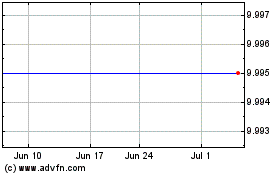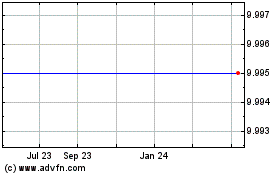University of Phoenix Poll Finds Role of Nurses is Expanding
May 12 2015 - 8:00AM
Business Wire
Nearly half of Americans polled indicate
majority of health care over past three years has come from a
nurse
In a U.S. health care climate challenged by increased patient
volume, aging populations and physician shortages, the evolving
role of nurses has taken center stage in discussions on alleviating
the impact to health care systems. A recent University of Phoenix®
College of Health Professions poll conducted online by Harris Poll
in April of more than 2,000 U.S. adults found that when it comes to
the care received from a nurse, the experience is overwhelmingly
positive. About nine in 10 view nurses as both knowledgeable (87
percent) and valuable to the health care system as a whole (95
percent).
While in practice it appears that nurses’ roles in health care
delivery are advancing, great respect and admiration for the
expanding role of nurses is also apparent—nearly half (47 percent)
indicate the majority of their health care over the past three
years has come from a nurse. Additionally, about 9 in 10 (87
percent) agree nurses are underappreciated for the role they play
in providing care, and are admired (94 percent) for the job they do
for patients. More than seven in 10 would use the words helpful (75
percent), hard-working (71 percent) and knowledgeable (70 percent)
to describe nurses they have encountered.
“The U.S. health care system is transforming to meet the
country’s health care needs and nurses are taking a leading role in
delivering high-quality care and developing innovations for health
care system change,” said Tamara Rozhon, Ed.D., Executive Dean,
University of Phoenix College of Health Professions. “Nurses should
be full partners with physicians and other health professionals in
providing care for patients. While nurses are increasingly
practicing to the full extent of their education and training, more
can be done to help educate patients about the skills and expertise
nurses possess.”
Role of Education in Advancing the Nursing Workforce
As the needs of health care organizations grow more complex, so
too do the skills and training requirements nurses must be prepared
to meet in order to grow in their profession. Health care employers
are increasingly hiring nurses with advanced education and more
nurses are obtaining advanced degrees1. Studies have found a strong
link between nurses with bachelor’s and graduate level education
and improved patient outcomes2. The Institute of Medicine (IOM)
concurred, with The Future of Nursing: Leading Change, Advancing
Health, an IOM report, calling for preparing at least 80 percent of
the nation’s nursing workforce with bachelor’s degrees by 2020, as
well as doubling the number of nurses with doctoral degrees3.
“Nursing education institutions play a critical role in the
health care landscape by ensuring we can educate an increased
number of baccalaureate and masters prepared nurses to fill roles
across the continuum of care,” said Rozhon. “At University of
Phoenix, we see a lot of demand for RN to BSN upskilling and
enrollment in graduate programs that prepare nurses to become nurse
leaders and managers. Now more than ever, it is critical that
nurses are empowered and have the skills and training needed to
meet the new demands of the profession.”
Survey Methodology
This survey was conducted online within the United States from
April 14-16, 2015 among 2,055 adults ages 18 and older, by Harris
Poll on behalf of Apollo Group via its Quick Query omnibus product.
Figures for age, sex, race/ethnicity, education, region and
household income were weighted where necessary to bring them into
line with their actual proportions in the population. Propensity
score weighting was used to adjust for respondents’ propensity to
be online. For complete survey methodology, including weighting
variables, please contact Jennifer Marshall at
jennifer.marshall@apollo.edu.
About College of Health Professions
University of Phoenix® College of Health Professions is a
provider of post-licensure nursing, health care administration and
health care support programs, certificates and courses. The school
is committed to providing innovative, relevant, applied education
that anticipates and addresses the needs of adults, their employers
and the health industry. For more information about the College’s
programs, including on-time completion rates, the median debt
incurred by students who completed the program and other important
information, please visit
phoenix.edu/programs/gainful-employment.
About University of Phoenix
University of Phoenix is constantly innovating to help working
adults move efficiently from education to careers in a rapidly
changing world. Flexible schedules, relevant and engaging courses,
and interactive learning can help students more effectively pursue
career and personal aspirations while balancing their busy lives.
As a subsidiary of Apollo Education Group, Inc. (Nasdaq: APOL),
University of Phoenix serves a diverse student population, offering
associate, bachelor’s, master’s and doctoral degree programs from
campuses and learning centers across the U.S. as well as online
throughout the world. For more information, visit
www.phoenix.edu.
1 http://www.aacn.nche.edu/news/articles/2015/enrollment2
http://www.aacn.nche.edu/media-relations/fact-sheets/nursing-workforce3
http://www.thefutureofnursing.org/sites/default/files/Future%20of%20Nursing%20Report_0.pdf
University of PhoenixJennifer Marshall,
847-476-2734jennifer.marshall@apollo.edu
Apollo Education Group, Inc. (NASDAQ:APOL)
Historical Stock Chart
From Mar 2024 to Apr 2024

Apollo Education Group, Inc. (NASDAQ:APOL)
Historical Stock Chart
From Apr 2023 to Apr 2024
